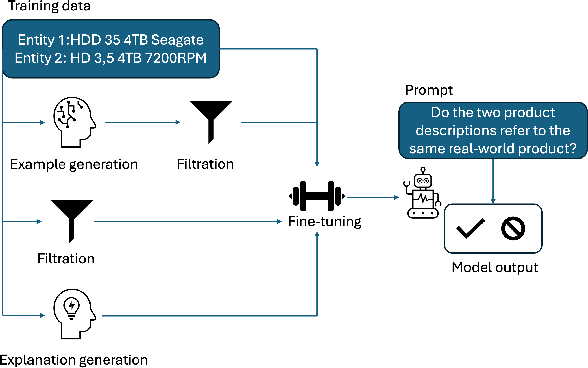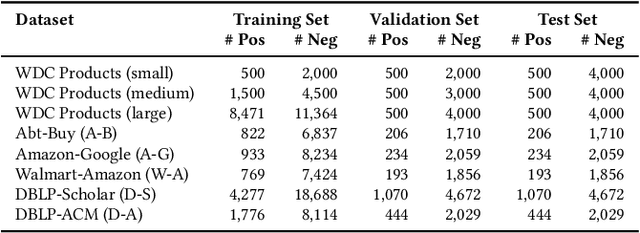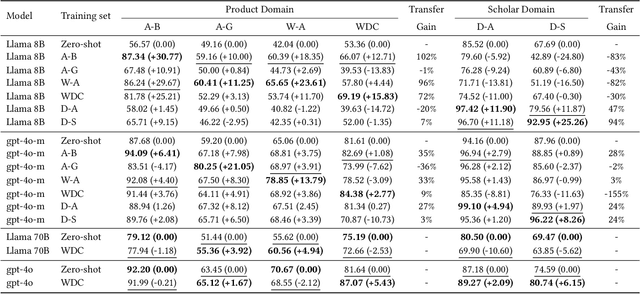Fine-tuning Large Language Models for Entity Matching
Paper and Code
Sep 12, 2024



Generative large language models (LLMs) are a promising alternative to pre-trained language models for entity matching due to their high zero-shot performance and their ability to generalize to unseen entities. Existing research on using LLMs for entity matching has focused on prompt engineering and in-context learning. This paper explores the potential of fine-tuning LLMs for entity matching. We analyze fine-tuning along two dimensions: 1) The representation of training examples, where we experiment with adding different types of LLM-generated explanations to the training set, and 2) the selection and generation of training examples using LLMs. In addition to the matching performance on the source dataset, we investigate how fine-tuning affects the model's ability to generalize to other in-domain datasets as well as across topical domains. Our experiments show that fine-tuning significantly improves the performance of the smaller models while the results for the larger models are mixed. Fine-tuning also improves the generalization to in-domain datasets while hurting cross-domain transfer. We show that adding structured explanations to the training set has a positive impact on the performance of three out of four LLMs, while the proposed example selection and generation methods only improve the performance of Llama 3.1 8B while decreasing the performance of GPT-4o Mini.
 Add to Chrome
Add to Chrome Add to Firefox
Add to Firefox Add to Edge
Add to Edge